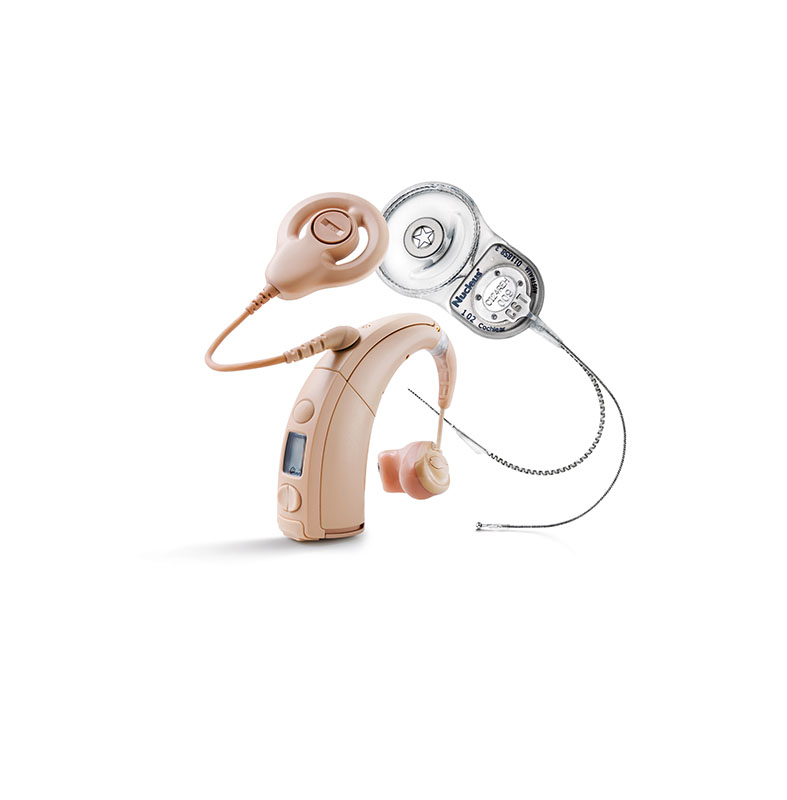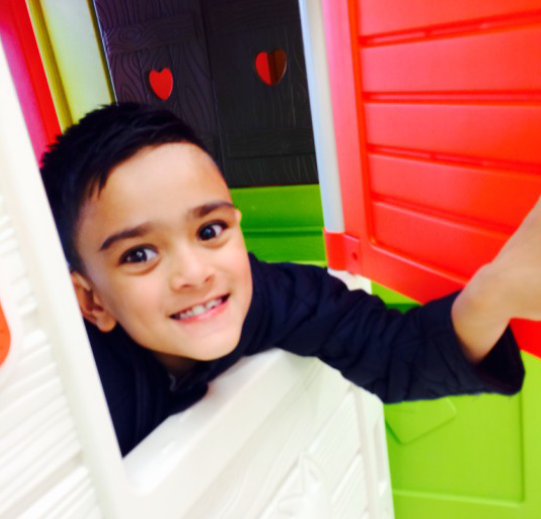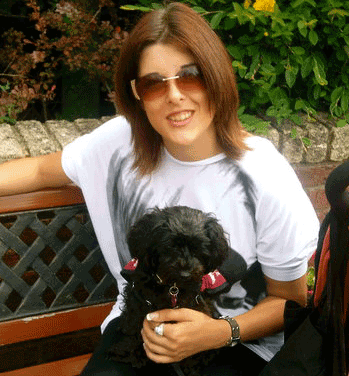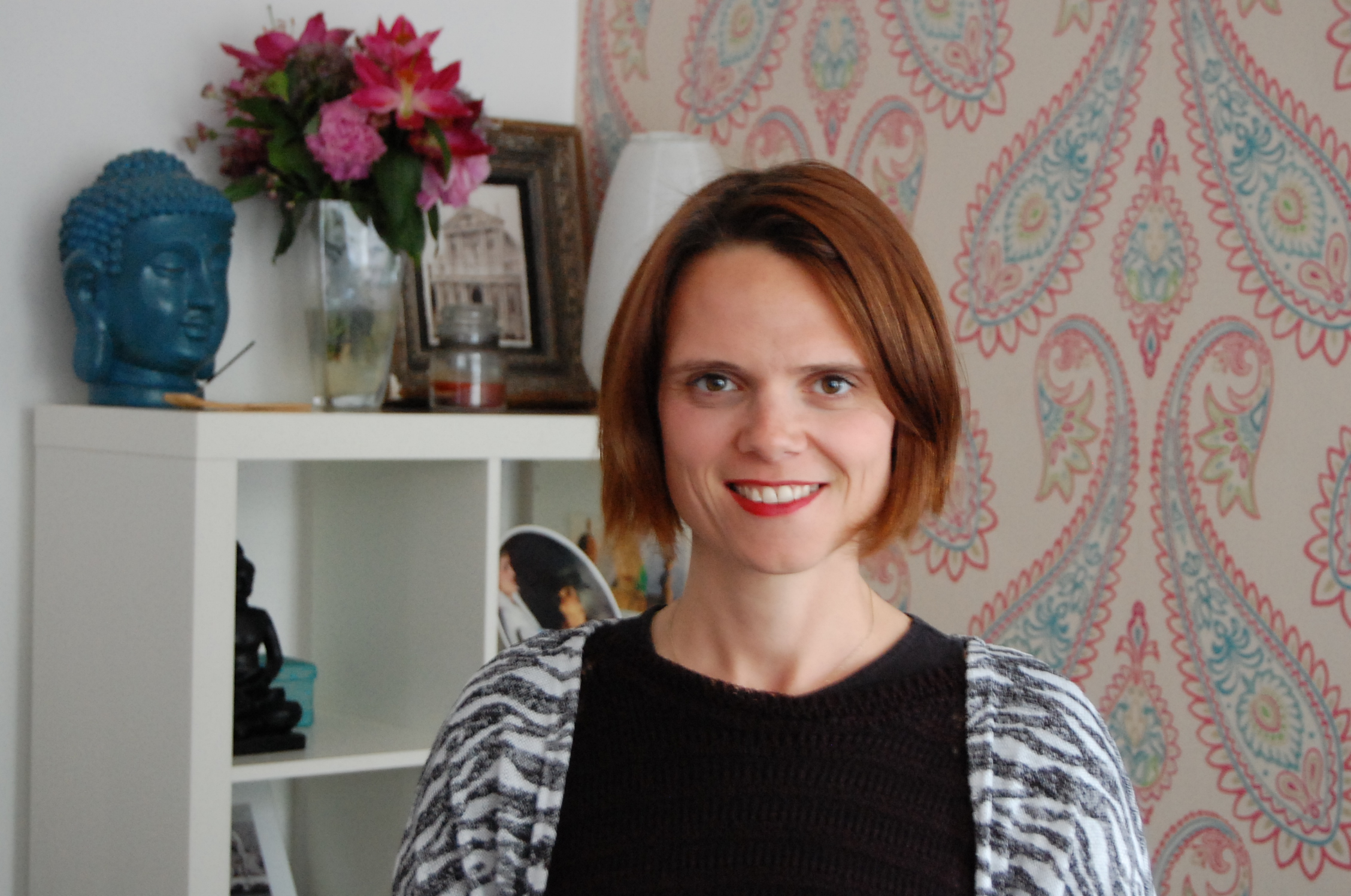My name is Jennie Williams, I am the Director and Founder of user led disability charity Enhance the UK, and I have degenerative hearing loss. My hearing loss is believed to be linked to a heart condition I have called long QT, which is otherwise known as sudden death syndrome.
For communicating, I wear two hearing aids which I rely on a lot. I am also an extremely good lip reader and sign up to British Sign Language (BSL) Level Three. But, really, how many people do you know that sign? Within the hearing world, BSL is not much use to me at all.
People tend to get very confused about what hard of hearing actually means. They tend to associate it with old people, so I often get people saying to me, “oh, yeah, my nan wears a hearing aid, we shout at her. I think she has selected hearing…chuckle chuckle.” I would be a very rich woman if I had a pound for every time I heard that, and yep, I mean ‘heard that’ because I can still hear things.
Sometimes, I can be in a room full of wheelchair users at a conference, for example, and I am the most able bodied person there. I am moving tables and chairs, assisting people to the loo if needed and then speakers will start up on the stage and, all of a sudden, I am the most disabled person in the room.
I normally can’t hear speakers clearly and often in these circumstances, the hearing loop (if they have one) doesn’t work or I can’t understand the BSL interpreter (again if they have one) as they are too fast and BSL is not my first language. So I sit, try really hard to lip read, take a painkiller as I know the dreaded ‘hearing headache’ will come on and try my best to keep up. It is hard work trying to lip read and, believe me, I don’t know any hard of hearing people who have ‘selected hearing.’ It depends on someone’s tone, how tired you are, your tinnitus (ringing in your ears) and how you feel that day.
So how do I approach telling people about my disability?
When I am at work, I am very assertive most of the time. I have to be. I am a campaigner and a disability awareness trainer – that’s what I do. I tell people from the off that I am hard of hearing and for them to please look at me when they are speaking to me or to keep their hands away from their mouths. I even tell them when I need an eye break. When I am in a social situation, however, things can be very difficult and different for for me.
I tend to just struggle on a lot of the time, laugh when everyone else is laughing, strain to keep up and, even worse still, I apologise. Why is that? I guess I don’t want to embarrass people and make them feel like they are not including me. I often feel like I am being annoying when I keep asking what is being said and, frankly, it becomes boring for me as well. So the answer to the question is not an easy one, it depends on which Jennie you are in the room with.
A lot of the time when you say to someone, ‘sorry,’ (I always start with a sorry, how very British of me, “Sorry but I am deafened could you turn and face me please,”) that person will more often than not appear to be somewhat embarrassed, say sorry as well and then shuffle around slightly and try to work it all out in their heads. A classic example of Scope’s ‘End the Awkward’ campaign. You see, I don’t seem as though I am hard of hearing, I have a hearing voice as I was born hearing, I am a good lip reader and you can’t see my aids as my hair is in a bob.
Now it is not all bad being hard of hearing. I fear I have painted a very negative picture so far. Would I change my hearing loss and and my disability? The answer is no, not because that is the PC thing to say and I am ‘owning my disability,’ I am saying it because that is how I feel. I believe I have an empathy, understanding and frankly unstoppable passion to support people who have communication impairments.
This is why I started up the charity Enhance the UK and do the work I do. I know so many cool, talented, fun people who are disabled, and of course some who are not. I truly believe that I would not have Enhance the UK in my life, and all that goes along with it, if I did not have my hearing loss.
So let’s talk about my favourite subject before it gets too deep. Dating!
There can be some real perks of dating someone with a hearing impairment, we can get you into the theatre for free or cheap, same with the train, and a lot of us can lip read conversations that you were never meant to know about from quite a way off and get all the gossip. Winning!
Dating someone with hearing loss can be hard and somewhat awkward at times, for all the social reasons I talked about before. Not to mention when you are getting down to things and having a good old snog, the last thing you want is your bloody hearing aids whistling every time the hot man (in my mind he is always hot) puts his fingers through your hair. And then your aids end up flying out of your ears, then the floor and the dog runs in and eats one of them. That is a true story, killed the moment I can tell you.
Let me tell you about one of my favourite, and also most awkward, dates.
I was single, living in London and looking for a boyfriend, so I did what all single Londoners do – I joined a dating site. I started chatting to this guy who looked cute and we had a bit of banter via email. We soon arranged to meet up as I was not one for chatting online for too long. We met on the South Bank and as I walked out the tube, I was greeted by the cute detective that I had been speaking to. He even looked like his photos, result!
We went onto one of the boats on the river and had a drink. We chatted about work as you do. I may or may not have been twisting my hair and trying to make my lips look all pouty and thinking to myself, ‘I really fancy this guy.’ So, I went to take out my lip gloss and out fell both of my hearing aid batteries at the same time. They are really small and so this guy, who I named Gov as he was a detective and I thought it was funny, said to me, “what on earth do they power?” I then explained my hearing loss and he replied by saying, “why do deaf people do this?” Cut to him waving his hands in the air and scrunching his face up with the tongue in his bottom lip making weird groaning sounds. Oh dear.
I was thinking about throwing my drink in his face but that would have been childish, and a waste of a drink, so I explained about British Sign Language and the culture behind it. I don’t think he got it at all but he was embarrassed and didn’t know what to say, so he offered to take me for a ride on his massive motor bike (not a euphemism) around London and then buy me dinner. I am very shallow.
Next favourite subject…sex.
Sex is great, we all love having sex but it can be a little awkward sometimes if you are hard of hearing and someone is trying to whisper sweet nothings in your ear. You can mishear totally which results in jumping up, turning on the lights and saying, “you want to do what to me?!” Again, true story and I won’t tell you what I thought he was saying to me.
Having sex with someone who is also deaf or hard of hearing can be hilarious. When I was younger I was having a fling with someone who was deaf and we always had to have sex by the door just in case his old’s came in, or we would put towels down against the door to try and block it from being opened, but always having one eye open just in case. Real romance.
So, back to the slightly more serious stuff. I started the campaign Undressing Disability three years ago.
I believe that having a disability can be a very isolating experience. As well as physical barriers, there is still a huge amount of prejudice towards disability amongst the general public
Undressing Disability is about challenging the misconceptions that create this unbalance and ensuring that better access to sexual health, sexual awareness and sex education is granted to disabled people. We provide a safe place in The Love Lounge for people to write in and discuss their problems and, in short, know they are not alone.
If people want to be sexually active they should be. I think there is this massive misconception that sex workers and disability go hand in hand. In some cases they might, but this should be a choice not the only option that people, men mainly, have. Most people I know and talk to want a loving relationship and want to feel loved and to love. Everyone has the right to have human touch, even if it is not sex as we know it. Any sense of intimacy between two people who care about one another is so important. Even if it’s a one night stand, but it is your choice, that’s also important. Lets face it, most of us have not only slept with people we ‘love.’ We all want to be found attractive and sexual relationships are the most natural thing in the world.
Sadly, Scope’s new research shows that that only 5% of people who aren’t disabled have ever asked out, or been on a date with, a disabled person. Am i surprised by this? No, of course I am not. Am I motivated to keep pushing the campaign until these statistics change? You bet I am.










